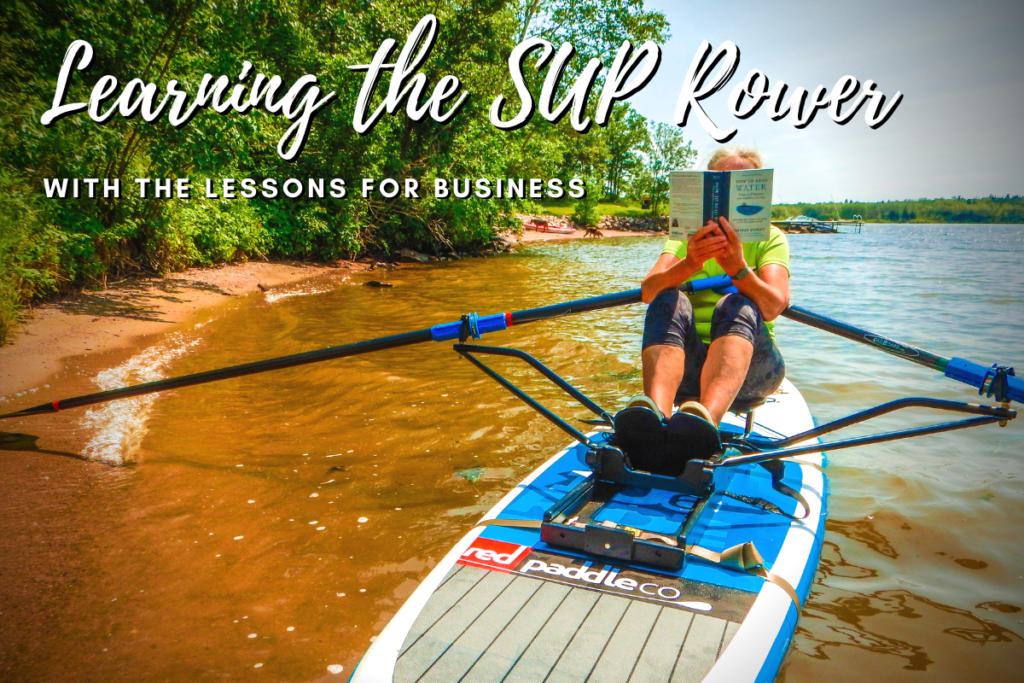
Learning the SUP Rower with Lessons for Business
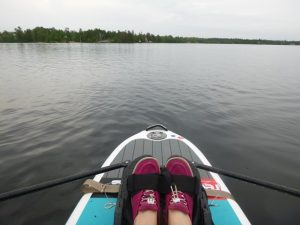
Rowing is frequently used as an analogy for teamwork specifically, and life and business generally. So it seems somehat unoriginal to examine my recent experiences with the Oar Board in a similar vein. But I really have been struck by a series of observations, perhaps because I am also in the process of reflecting upon and reimagining my rowing travel business.
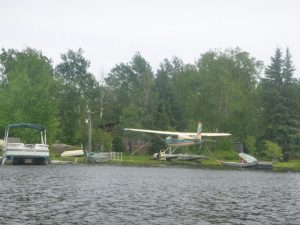
The Oar Board attaches to a stand-up paddleboard (SUP), creating a SUP rower http://www.oarboard.com/ . It really is quite clever, and while there are other variations on the market, the Oar Board seems to have grabbed the attention, and I suspect the lion’s share of purchases. Now that is a good business lesson that I would like to learn – how exactly did they do that?
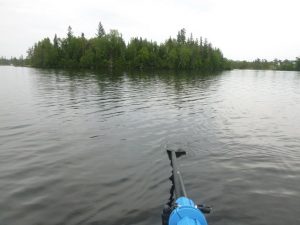
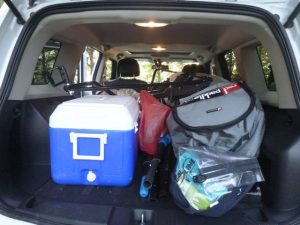
I have been aware of Oar Boards for several years. I loved the idea of being able to row virtually anywhere and very independently. The possibilities for using it during vacations or leisure time seemed limitless – except that I rarely seem to take vacations or have leisure time, primarily because I am in the business of giving other people rowing holidays. But I also saw applications to my business. Perhaps I could use it to test out possible rowing destinations or have a means to include more rowing into my frequent travel. Or maybe SUP rowers would offer the opportunity to run rowing trips where there are no rowing clubs.
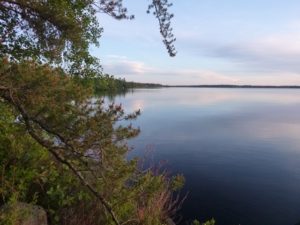
I finally bought one, in part because I had a longer period when I would be at home for a while and not just getting ready to get back on the plane. Which really is the first lesson: at some point you have to start. You also have to know more – ideas aren’t the same hypothetically vs. in reality. I had to see if it rowed acceptably, if I really could travel with it, and if it really did open up the opportunities that I was imagining.
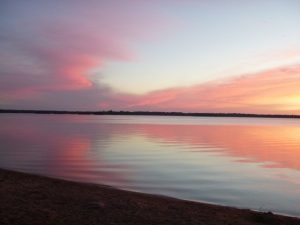
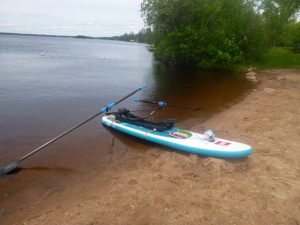
It is a work in progress. I don’t see the point to use it to row at my club venue. We have great equipment that I love to row, although I assume that lots of Oar Board owners use it as their only means to row. Rather, I am typing this at a campsite in Whiteshell Provincial Park, Manitoba. A little window of time opened up and I decided to camp for two nights, not only to enjoy being out of the city and in nature, but also to have concentrated time to reflect on a few important business decisions that I need to make. I selected a location that I thought that would offer lovely rowing, even though I was not 100% sure if it would make for good camping, good thinking or good rowing. Luckily I have succeeded on all three fronts. Brereton Lake was not my first choice. Chatting with a few people prompted me to re-examine my initial thinking and led me to what has proven to be an excellent decision. Another lesson – test your ideas, at least a little, and dig deeper when a key variable is questioned. In this case, one friend pointed out that the original body of water that I was going to camp at is significantly shorter than I had realized. That actually was quite important.

There are a multitude of lessons to be extracted from the (ongoing) process of getting the Oar Board truly well set up and delivering the experience that I anticipated and desired. Somewhat embarrassing was the strap situation – when something isn’t working, don’t keep trying the same thing over and over again! The solution must be in approaching it a different way. And, reach out and ask for help, even with strangers.
Actually rowing the Oar Board brings a host of lessons to mind. The feet move, not the seat, so it is the same but different, and minor adaptations in technique make it more effective. Skills you don’t normally need to know come into play. For example, I was extremely comfortable taking it out with windy conditions that would not have been suitable for a single. However, since you sit high off the water on a short vessel with no hull, you catch the wind more. Now I am motivated to learn more about handling the Oar Board in different wind and current conditions. It reminds me of things that I had forgotten about tracking a canoe in the wind. The lesson: I needed to be sure that success is possible. Now it is appropriate to invest more time and effort in fine tuning. Perhaps a variation on the minimum viable product concept of the Lean Startup http://theleanstartup.com/ .
In the end, it has given me huge pleasure. Both to be rowing in places that I would not have otherwise, and to have the challenge and success of making it work. Oh, and a final lesson, maybe more of a life one: the Oar Board is very unusual, and certainly would have been the first time in this part of rural Manitoba. I was sure that I would be an object of curiosity, maybe even fascination with the cottagers along the lake. Well, perhaps we are never quite as interesting as we think we are!